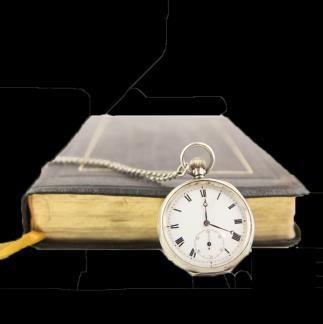

Global Warming
How concerned (and how green) should we be?
Introduction
• Whenyouheartheterm global warming, whataresomethingsthatcometo mind?
• Poll:Isglobalwarmingreal?(Eventhoughthisisn’tfair,youmustansweryes orno!)
The Facts
• Carbondioxideandothergreenhousegaseshaveincreased:30%carbon dioxideand30%carbondioxideequivalentssinceaboutthetimeofthe IndustrialRevolution(mid-1800s).
• Globaltemperatureshaveincreased1.2degreesFahrenheitduring approximatelythesametimeperiod.
The Key Issues in Dispute
1. Howmuchofglobalwarminghasbeencausedbyhumans?
2. Willthesetrendscontinue?
3. Whatwillhappeniftheydocontinue?

© 2016 Northwestern Publishing House. All rights reserved. Reprinted by permission.
What Does the Bible Say About Climate Change?
Genesis 1:6-8
God said, “Let there be an expanse between the waters, and let it separate the water from the water.” 7 God made the expanse, and he separated the water that was below the expanse from the water that was above the expanse, and it was so. 8 God called the expanse “sky.” There was evening and there was morning—the second day.
1. Wheredidtheearth’satmospherecomefrom?
2. Fromtherestofthecreationaccount,whatcanweassumeaboutthe compositionoftheearth’satmosphereatcreation?
3. Howdoesanevolutionaryworldviewimpactaperson’sviewofglobal warming?
Genesis 1:26-29
God said, “Let us make man in our image, according to our likeness, and let them have dominion over the fish of the sea, and over the birds of the sky, and over the livestock, and over all the earth, and over every creeping thing that crawls on the earth.”
27 God created the man in his own image. In the image of God he created him. Male and female he created them.
28 God blessed them and said to them, “Be fruitful, multiply, fill the earth, and subdue it. Have dominion over the fish of the sea, over the birds of the sky, and over every living thing that moves on the earth.” 29 God said, “Look, I have given you every plant that produces seed on the face of the whole earth, and every tree that bears fruit that produces seed. It will be your food.”
4. WhatroledidGodgivehumankindatcreation?
5. HowdoesthiscommandaffectthewayweasChristiansliveonearth?
6. ForwhatpurposedidGodcreateplants?
7. Howwouldanevolutionaryworldviewimpactaperson’sviewon humankind’splaceonearth?
Genesis 3:17-19
To Adam he said: Because you listened to your wife’s voice and ate from the tree about which I commanded you, “You shall not eat from it,” the soil is cursed on account of you. You will eat from it with painful labor all the days of your life. 18 Thorns and thistles will spring up from the ground for you, but you will eat the crops of the field. 19 By the sweat of your face you will eat bread until you return to the soil, for out of it you were taken. For you are dust, and to dust you shall return.
8. Whatistrueofourworldeversincethefallintosin?
9. HowdoesthisaffectaChristian’sperspectiveonglobalwarming?
Genesis 8:22
“While the earth remains, seedtime and harvest, cold and heat, summer and winter, and day and night shall not cease.”
10. PutinyourownwordswhatGodpromisedNoah(andallhumankind)in theimmediateaftermathoftheflood.
11. HowdoesthisaffectaChristian’sperspectiveonglobalwarming?
BONUS MATERIAL
On May 24, 2015, Pope Francis released an encyclical entitled LaudatoSi, in which he called for new and global dialogue concerning care for our planet.
Take several minutes to read through a summary of this lengthy document along with several key quotations (excerpts below, by Kevin Cotter of FOCUS).
1. WhatisthebasicmessageofPopeFrancis’encyclicalonclimatechange?
2. Whataresomestatementsandideaswithwhichwewouldagree?
3. Whataresomestatementsandideaswithwhichwewoulddisagree?
4. Tellwhatyouropinionisofthisstatement:Thepopeshouldnothaveissued anysortofstatementonglobalwarmingbecauseitinvolveshiminscience andpolitics,whicharenotthebusinessofthechurch.
GeneralSummary(in2minutes)
Laudato Si isPopeFrancis’Encyclicalontheenvironmentormoreformally–On CareforOurCommonHome. Laudato Si means“Praisebetoyou”whichisthefirst lineofacanticlebySt.FrancisthatpraisesGodwithallofhiscreation.
Fromtheoutset,PopeFrancisstatesthegoalofthedocument:“InthisEncyclical,I wouldliketoenterintodialoguewithallpeopleaboutourcommonhome”(#3).
Normally,papaldocumentsareaddressedtothebishopsoftheChurchorthelay faithful.But,similartoPopeSaintJohnXXIII’s Pacem in Terris,PopeFrancisaddress hismessagetoallpeople.
The goal of the dialogue: “Iurgentlyappeal,then,foranewdialogueabouthowwe areshapingthefutureofourplanet.Weneedaconversationthatincludeseveryone, sincetheenvironmentchallengeweareundergoing,anditshumanroots,concern andaffectusall”(#14).
Theaboveisattheheartofthedocument,butPopeFrancisalsohasa very striking call to conversion forthoseintheChurchaswell.
“Theecologicalcrisisisalsoasummonstoprofoundinteriorconversion.Itmustbe saidthatsomecommittedandprayerfulChristians,withtheexcuseofrealismand pragmatism,tendtoridiculeexpressionsofconcernfortheenvironment.Othersare passive;theychoosenottochangetheirhabitsandthusbecomeinconsistent.So whattheyallneedisan‘ecologicalconversion’,wherebytheeffectsoftheir encounterwithJesusChristbecomeevidentintheirrelationshipwiththeworld aroundthem.LivingourvocationtobeprotectorsofGod’shandiworkisessentialto alifeofvirtue; it is not an optional or a secondary aspect of our Christian experience”(#217)(boldmine).
Nomatterwhoyouareorwhereyoufindyourselfinrelationtoprotectingthe environment,PopeFrancishasthismessageforyou:“Iinvitealltoembracewith openheartsthisEncyclicalwhichisinlinewiththeChurch’ssocialdoctrine” (GeneralAudience,June17,2015).
Table of Contents (With Brief Summary Quotations for Each)
Inmanyways,thestructureandformatofthedocumentisverystraightforwardand logical.Itconsistsofsixchapters.Iwilllistthembelowandthenprovidetwoquotes foreachthatIbelievesummarizesthatchapter.
CHAPTERONE–WHATISHAPPENINGTOOURCOMMONHOME
CHAPTERTWO–THEGOSPELOFCREATION
CHAPTERTHREE–THEHUMANROOTSOFTHEECOLOGICALCRISIS
CHAPTERFOUR–INTEGRALECOLOGY
CHAPTERFIVE–LINESOFAPPROACHANDACTION
CHAPTERSIX–ECOLOGICALEDUCATIONANDSPIRITUALITY
CHAPTER ONE – WHAT IS HAPPENING TO OUR COMMON HOME
Summary quote of this chapter’s goal: “Theologicalandphilosophicalreflections onthesituationofhumanityandtheworldcansoundtiresomeandabstract,unless theyaregroundedinafreshanalysisofourpresentsituation,whichisinmanyways unprecedentedinthehistoryofhumanity.So,beforeconsideringhowfaithbrings newincentivesandrequirementswithregardtotheworldofwhichweareapart,I willbrieflyturntowhatishappeningtoourcommonhome”(#17).
Summary quote of this chapter’s message: “Butasoberlookatourworldshows thatthedegreeofhumanintervention,oftenintheserviceofbusinessinterestsand consumerism,isactuallymakingourearthlessrichandbeautiful,evermorelimited andgrey,evenastechnologicaladvancesandconsumergoodscontinuetoabound limitlessly.Weseemtothinkthatwecansubstituteanirreplaceableand irretrievablebeautywithsomethingwhichwehavecreatedourselves”(#34).
CHAPTER TWO – THE GOSPEL OF CREATION
Summary quote of this chapter’s goal: “Whyshouldthisdocument,addressedto allpeopleofgoodwill,includeachapterdealingwiththeconvictionsofbelievers?I amwellawarethatintheareasofpoliticsandphilosophytherearethosewho firmlyrejecttheideaofaCreator,orconsideritirrelevant…Nonetheless,science andreligion,withtheirdistinctiveapproachestounderstandingreality,canenter intoanintensedialoguefruitfulforboth”(#62).
Summary quote of this chapter’s message: “WearenotGod.Theearthwashere beforeusandithasbeengiventous….AlthoughitistruethatweChristianshaveat timesincorrectlyinterpretedtheScriptures,nowadayswemustforcefullyrejectthe notionthatourbeingcreatedinGod’simageandgivendominionovertheearth justifiesabsolutedominationoverothercreatures.
Thebiblicaltextsaretobereadintheircontext,withanappropriatehermeneutic, recognizingthattheytellusto‘tillandkeep’thegardenoftheworld(cf.Gen2:15).
’Tilling’referstocultivating,ploughingorworking,while‘keeping’meanscaring, protecting,overseeingandpreserving.Thisimpliesarelationshipofmutual responsibilitybetweenhumanbeingsandnature.Eachcommunitycantakefrom thebountyoftheearthwhateveritneedsforsubsistence,butitalsohasthedutyto protecttheearthandtoensureitsfruitfulnessforcominggenerations”(#67)
CHAPTER THREE – THE HUMAN ROOTS OF THE ECOLOGICAL CRISIS
Summary quote of this chapter’s goal: “Itwouldhardlybehelpfultodescribe symptomswithoutacknowledgingthehumanoriginsoftheecologicalcrisis.A certainwayofunderstandinghumanlifeandactivityhasgoneawry,totheserious detrimentoftheworldaroundus.Shouldwenotpauseandconsiderthis?Atthis stage,Iproposethatwefocusonthedominanttechnocraticparadigmandtheplace ofhumanbeingsandofhumanactionintheworld”(#101).
Summary quote of this chapter’s message: “Itcanbesaidthatmanyproblemsof today’sworldstemfromthetendency,attimesunconscious,tomakethemethod andaimsofscienceandtechnologyanepistemologicalparadigmwhichshapesthe livesofindividualsandtheworkingsofsociety.
Theeffectsofimposingthismodelonrealityasawhole,humanandsocial,areseen inthedeteriorationoftheenvironment,butthisisjustonesignofareductionism whichaffectseveryaspectofhumanandsociallife.Wehavetoacceptthat technologicalproductsarenotneutral,fortheycreateaframeworkwhichendsup conditioninglifestylesandshapingsocialpossibilitiesalongthelinesdictatedbythe interestsofcertainpowerfulgroups”(#107).
CHAPTER FOUR – INTEGRAL ECOLOGY
Summary quote of this chapter’s goal: “Sinceeverythingiscloselyinterrelated, andtoday’sproblemscallforavisioncapableoftakingintoaccounteveryaspectof theglobalcrisis,Isuggestthatwenowconsidersomeelementsofanintegral ecology,onewhichclearlyrespectsitshumanandsocialdimensions”(#137).
Summaryquoteofthischapter’smessage:“Weurgentlyneedahumanismcapable ofbringingtogetherthedifferentfieldsofknowledge,includingeconomics,inthe serviceofamoreintegralandintegratingvision.Today,theanalysisof environmentalproblemscannotbeseparatedfromtheanalysisofhuman,family, workrelatedandurbancontexts,norfromhowindividualsrelatetothemselves, whichleadsinturntohowtheyrelatetoothersandtotheenvironment”(#141).
CHAPTER FIVE – LINES OF APPROACH AND ACTION
Summary quote of this chapter’s goal: “SofarIhaveattemptedtotakestockof ourpresentsituation,pointingtothecracksintheplanetthatweinhabitaswellas totheprofoundlyhumancausesofenvironmentaldegradation.Althoughthe contemplationofthisrealityinitselfhasalreadyshowntheneedforachangeof
directionandothercoursesofaction,nowweshalltrytooutlinethemajorpathsof dialoguewhichcanhelpusescapethespiralofself-destructionwhichcurrently engulfsus”(#163).
Summary quote of this chapter’s message: “Interdependenceobligesustothink ofoneworldwithacommonplan.Yetthesameingenuitywhichhasbroughtabout enormoustechnologicalprogresshassofarprovedincapableoffindingeffective waysofdealingwithgraveenvironmentalandsocialproblemsworldwide.Aglobal consensusisessentialforconfrontingthedeeperproblems,whichcannotbe resolvedbyunilateralactionsonthepartofindividualcountries.”(#164)
CHAPTER SIX – ECOLOGICAL EDUCATION AND SPIRITUALITY
Summary quote of this chapter’s goal: “Manythingshavetochangecourse,butit iswehumanbeingsaboveallwhoneedtochange.Welackanawarenessofour commonorigin,ofourmutualbelonging,andofafuturetobesharedwitheveryone. Thisbasicawarenesswouldenablethedevelopmentofnewconvictions,attitudes andformsoflife.Agreatcultural,spiritualandeducationalchallengestandsbefore us,anditwilldemandthatwesetoutonthelongpathofrenewal”(#202).
Summary quote of this chapter’s message: “IncallingtomindthefigureofSaint FrancisofAssisi,wecometorealizethatahealthyrelationshipwithcreationisone dimensionofoverallpersonalconversion,whichentailstherecognitionofour errors,sins,faultsandfailures,andleadstoheartfeltrepentanceanddesireto change”(#218).
QUOTES ON SOME OF THE MAIN THEMES IN LAUDATO SI
On the effects of the market on the environment
“Oncemore,weneedtorejectamagicalconceptionofthemarket,whichwould suggestthatproblemscanbesolvedsimplybyanincreaseintheprofitsof companiesorindividuals.Isitrealistictohopethatthosewhoareobsessedwith maximizingprofitswillstoptoreflectontheenvironmentaldamagewhichtheywill leavebehindforfuturegenerations?Whereprofitsalonecount,therecanbeno thinkingabouttherhythmsofnature,itsphasesofdecayandregeneration,orthe complexityofecosystemswhichmaybegravelyupsetbyhumanintervention” (#190).
On the false belief in technology
“Thereisatendencytobelievethateveryincreaseinpowermeans‘anincreaseof “progress”itself’,anadvancein‘security,usefulness,welfareandvigour;…an assimilationofnewvaluesintothestreamofculture’,asifreality,goodnessand truthautomaticallyflowfromtechnologicalandeconomicpowerassuch.Thefactis that‘contemporarymanhasnotbeentrainedtousepowerwell’,becauseour immensetechnologicaldevelopmenthasnotbeenaccompaniedbyadevelopment inhumanresponsibility,valuesandconscience.Eachagetendstohaveonlya meagreawarenessofitsownlimitations.Itispossiblethatwedonotgraspthe gravityofthechallengesnowbeforeus”(#105).
On global warming
“Averysolidscientificconsensusindicatesthatwearepresentlywitnessinga disturbingwarmingoftheclimaticsystem.Inrecentdecadesthiswarminghasbeen accompaniedbyaconstantriseinthesealeveland,itwouldappear,byanincrease ofextremeweatherevents,evenifascientificallydeterminablecausecannotbe assignedtoeachparticularphenomenon.Humanityiscalledtorecognizetheneed forchangesoflifestyle,productionandconsumption,inordertocombatthis warmingoratleastthehumancauseswhichproduceoraggravateit.”(#23).(For moreonglobalwarmingandclimatechangesee,#24-26,#52,#169-170,#172, #175,#181#188.)
On science and technology as a belief system
“Itcanbesaidthatmanyproblemsoftoday’sworldstemfromthetendency,at timesunconscious,tomakethemethodandaimsofscienceandtechnologyan epistemologicalparadigmwhichshapesthelivesofindividualsandtheworkingsof society.Theeffectsofimposingthismodelonrealityasawhole,humanandsocial, areseeninthedeteriorationoftheenvironment,butthisisjustonesignofa reductionismwhichaffectseveryaspectofhumanandsociallife”(#106).
On the environment and the poor
“Thehumanenvironmentandthenaturalenvironmentdeterioratetogether;we cannotadequatelycombatenvironmentaldegradationunlessweattendtocauses relatedtohumanandsocialdegradation.Infact,thedeteriorationofthe environmentandofsocietyaffectsthemostvulnerablepeopleontheplanet:‘Both everydayexperienceandscientificresearchshowthatthegravesteffectsofall attacksontheenvironmentaresufferedbythepoorest’”(#48).
On the right balance with the respect of the environment and humanity
“Thissituationhasledtoaconstantschizophrenia,whereinatechnocracywhich seesnointrinsicvalueinlesserbeingscoexistswiththeotherextreme,whichsees nospecialvalueinhumanbeings.Butonecannotprescindfromhumanity.There canbenorenewalofourrelationshipwithnaturewithoutarenewalofhumanity itself.Therecanbenoecologywithoutanadequateanthropology”(#118).
On consumerism
“Whenpeoplebecomeself-centeredandself-enclosed,theirgreedincreases.The emptieraperson’sheartis,themoreheorsheneedsthingstobuy,ownand consume.Itbecomesalmostimpossibletoacceptthelimitsimposedbyreality.In thishorizon,agenuinesenseofthecommongoodalsodisappears”(#204).
